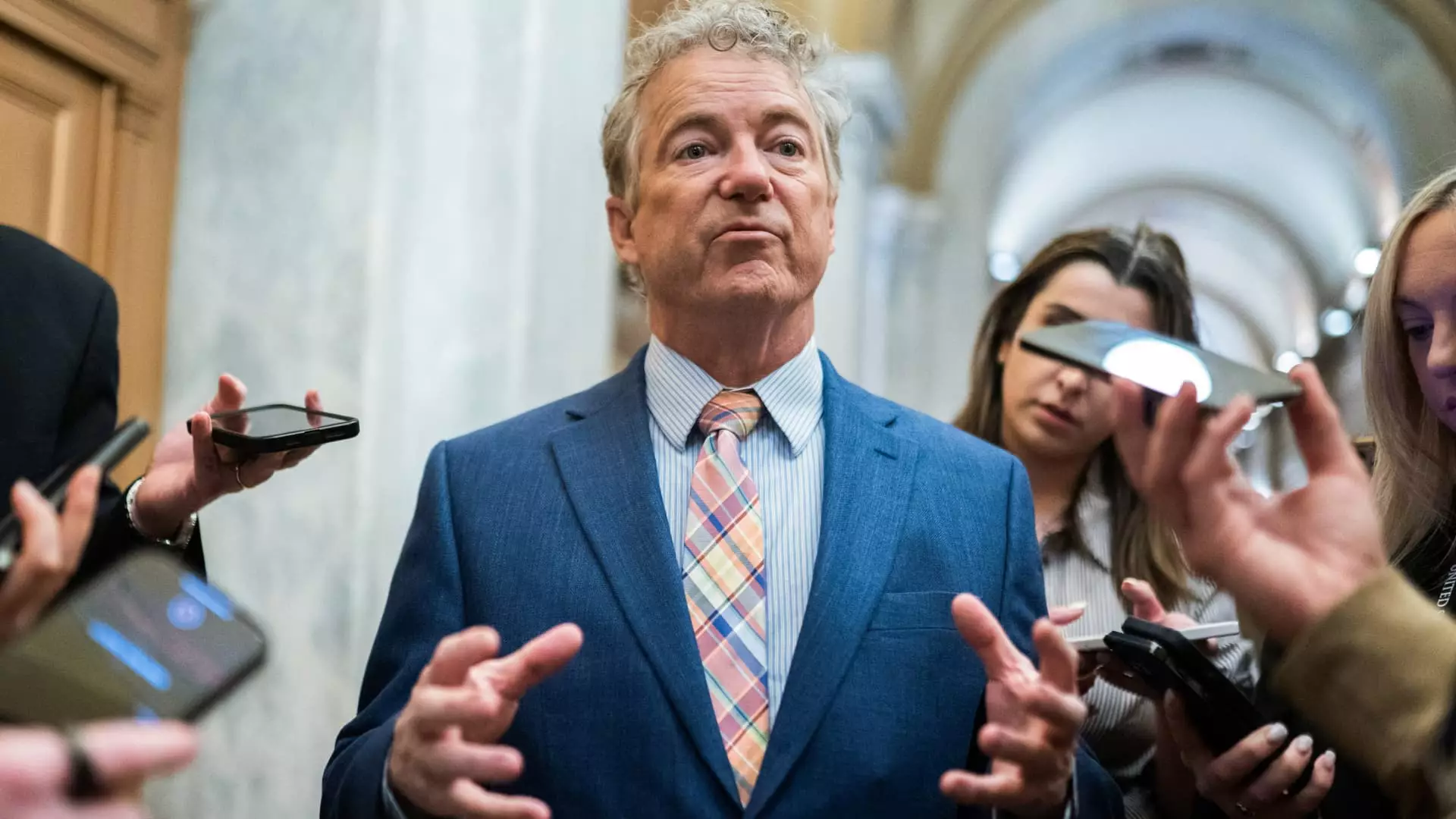In an era where financial responsibility is allegedly a priority within the Republican Party, President Donald Trump’s latest budget bill, which extends an astronomical debt ceiling, has ignited an unexpected conflict with Senator Rand Paul. Loosely tethered to libertarian principles, Paul’s unwavering dedication to fiscal conservatism puts him at odds with the former president’s approach, which seems cavalier in its disregard for budgetary constraints. With Trump openly scorning Paul’s reservations on social media and branding him as “crazy,” it seems that the ideological rift isn’t merely a policy debate; it’s a spectacle of political theatrics showcasing the contours of modern conservatism.
Trump’s vehement attack on Paul isn’t surprising, yet it highlights an alarming trend within the GOP—a growing acceptance of reckless spending if it aligns with populist appeals. Trump’s defense of this bill, which he insists will lead to “tremendous GROWTH,” crosses into the realm of magical thinking. Proponents like Trump seem to dismiss well-documented evidence showing that expanding debt without substantive reforms often correlates with economic instability rather than prosperity. The hyperbole around this bill, couched as the “one big, beautiful bill,” appears more as a smoke and mirrors act, cloaking serious financial implications that could burden future generations.
A Fragile Coalition
Trump’s budgeting strategy, which passed through the House amid fierce debates, epitomizes the fragility of his coalition. The bill’s controversial debt ceiling increase, now projected to be as high as $5 trillion, is a critical sticking point for many Republicans—particularly those, like Paul, who advocate for a more restrained fiscal approach. In a political climate riddled with polarization, Paul’s dissent is a rallying cry for more traditional conservatives who are gravely concerned that long-term debts may hamper America’s economic future.
His argument—that raising the ceiling on the national debt is tantamount to kicking the can down the road—is accurate. Yet, in the era of Trump, such views are often met with hostility. The former president’s narrative is that dissent equates to an unwillingness to govern, a dangerous stance that disregards the importance of healthy debate and dissent within a democracy. Within a party long espousing the virtues of limited government and fiscal conservatism, this shift toward a more spend-happy mentality raises eyebrows.
Economic Reality vs. Political Theatre
The fallout from this internal party clash reveals an essential truth: we must pivot our focus from mere political survival to substantive economic reality. Trump’s arguments that the bill will usher in growth seem overly simplistic. Claiming that destroying the debt ceiling will magically stimulate the economy while broadening the deficit is beyond optimistic; it is irresponsible rhetoric. If history has taught us anything, it’s that unmitigated growth coupled with increasing debt often leads to fiscal crises.
Moreover, while tax cuts are appealing, their efficacy must be evaluated within the broader context of government spending. Paul expresses an earnest desire for permanent tax cuts, yet his pragmatism is overshadowed by the overarching expenditure inflations proposed in the bill. It appears foolish to chase after tax benefits while accepting ballooning debt, as it compromises the integrity of fiscal responsibility.
A Call for Genuine Debate
As the Senate prepares to navigate the intricate web of this budget bill, the dialogue must shift from mere party loyalty to genuine discussions about the financial implications of such legislation. Paul’s trenchant critique—that not evaluating the debt is akin to ignoring a ticking time bomb—should serve as a critical caution that both Republicans and Democrats ought to heed. The idea that expansive spending guarantees economic growth is a myth that can no longer dictate our fiscal policy. The stark tendency to equate criticism with betrayal must be abandoned; fiscal policies require balanced viewpoints, even if they are unpopular within their own ranks.
Trump’s disdain for dissent not only stifles beneficial discourse within the GOP but also risks alienating constituents who are calling for more judicious governance. Politicians must remember that authentic support from the American people emerges from meticulous scrutiny and pragmatic debate, not blind adherence to party lines. The political landscape should encourage robust discussions about fiscal responsibility that blend conservative values with contemporary economic realities.


Leave a Reply